5 conclusions from the 2020 Tour Down Under
Porte, Impey, Ewan and new kid on the block Holmes animate Australian WorldTour race
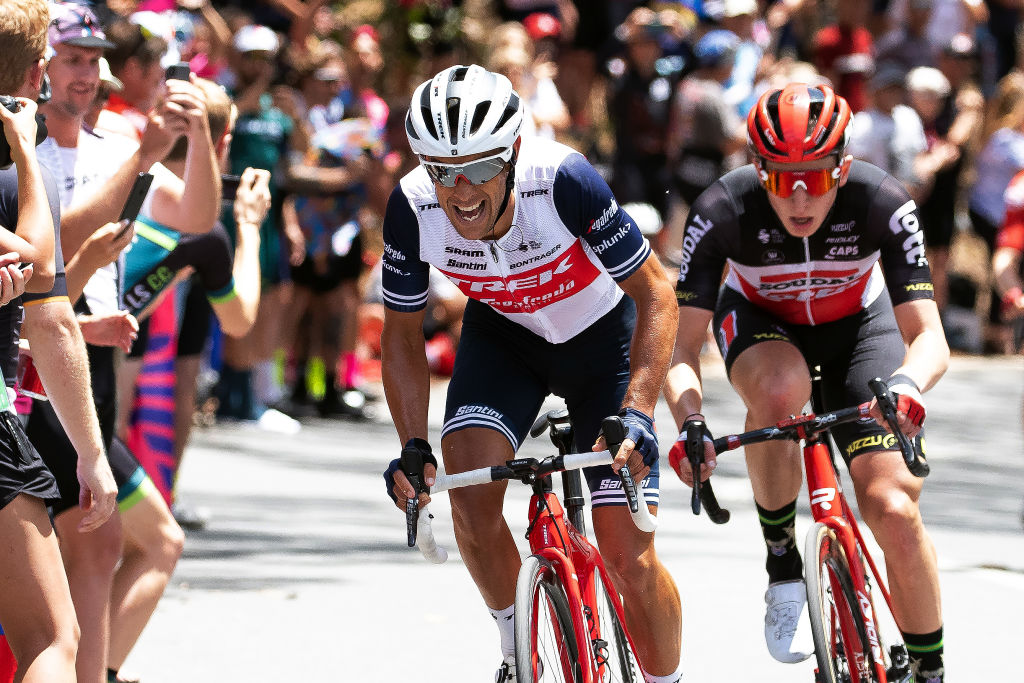

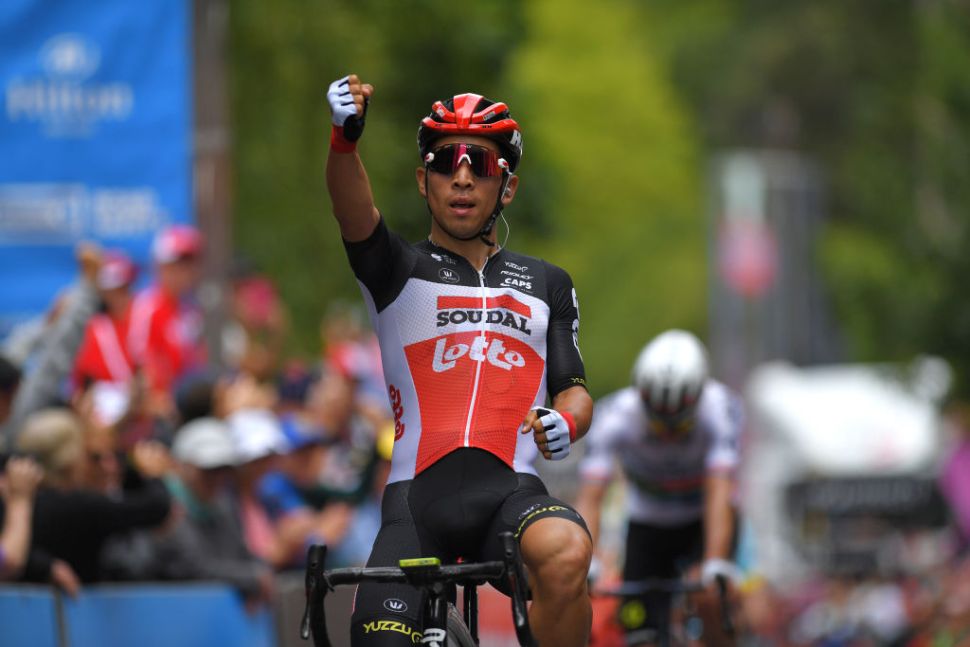
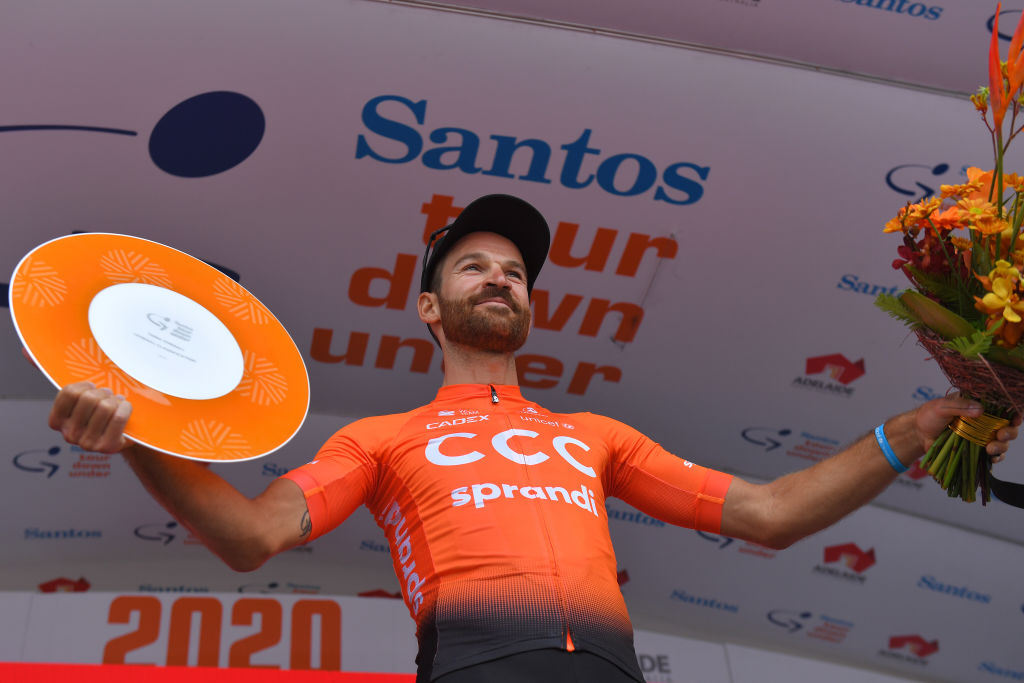
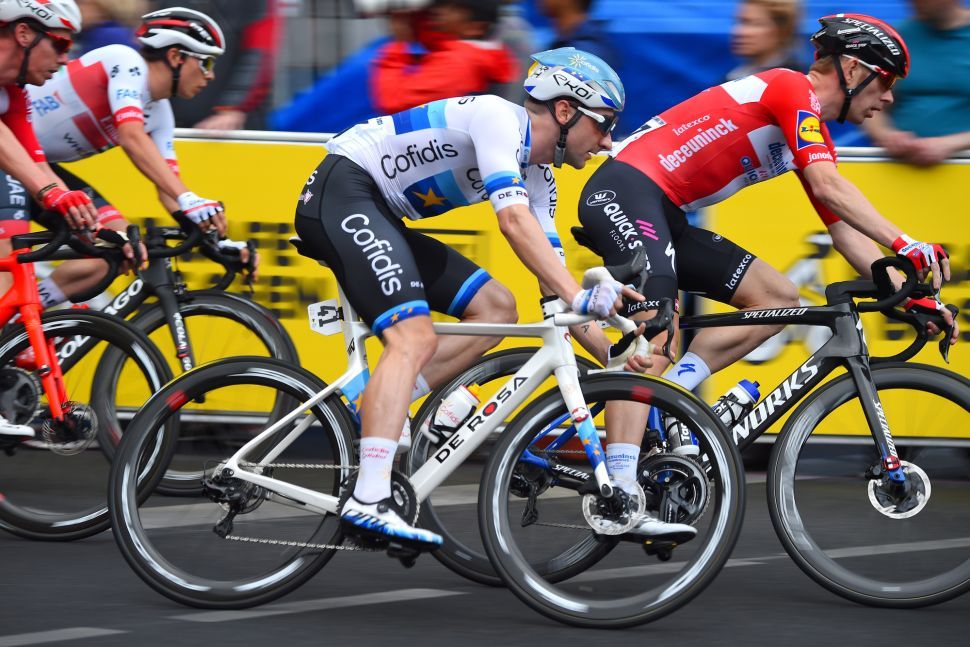
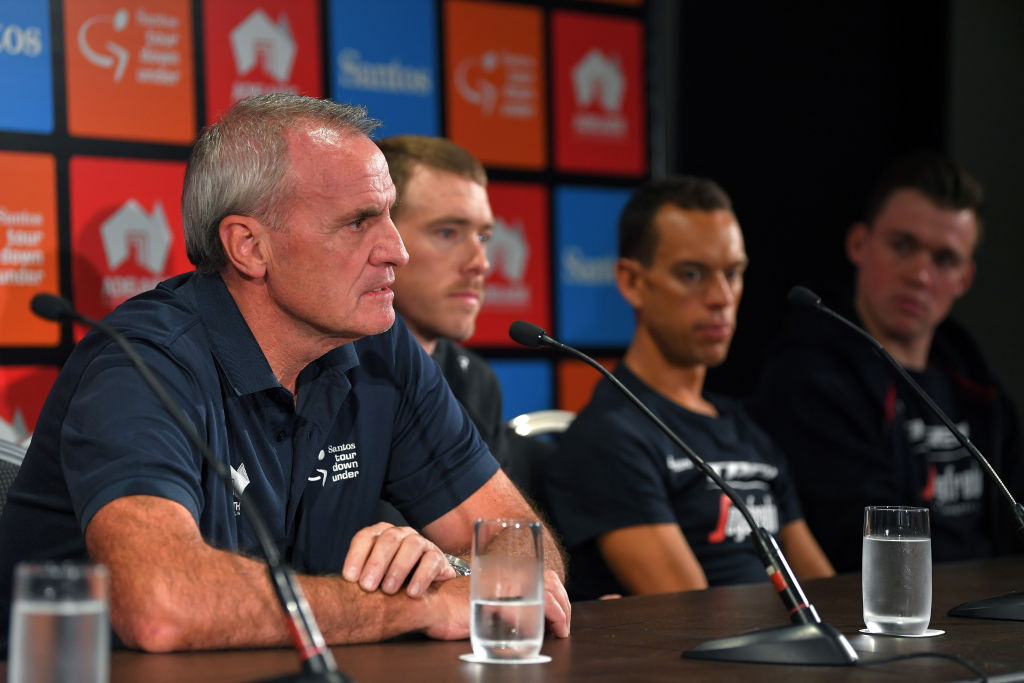
Once Richie Porte forged clear on the final climb up to Paracombe on stage 3 of the 2020 Tour Down Under, it seemed likely that the Trek-Segafredo climber was well on his way to taking a second overall victory at the Australian WorldTour stage race,
Defending champion Daryl Impey (Mitchelton-Scott), however, wasn't going to let Porte have it all his own way, and nor was he going to give up the title without a fight, which the South African has won for the past two years, working hard to hoover up bonus seconds throughout the race.
The Tour Down Under came down to the final climb of Willunga Hill on the sixth and final stage once more, but there were plenty of surprises and takeaways along the route. Here, Cyclingnews takes a look at just five of them.
Porte is beatable on Willunga Hill after all
When Trek-Segafredo's Richie Porte danced away from his main rivals with just over a kilometre of the climb of Willunga Hill to go on stage 6, it looked almost certain that he would claim a seventh-straight stage win at the top of the climb, and with it his second overall title, after last winning the race in 2017.
And while the latter came to pass, his run of stage wins on the climb was ended by Lotto Soudal neo-pro Matt Holmes, who had been part of the day's breakaway, but had contributed virtually nothing in order to keep his power dry for the day's final climb.
Although Holmes was caught by Porte's acceleration, he doggedly fought back level with Porte, and then passed him in the final couple of hundred metres, kicking out towards the finish line for a memorable victory.
In recent years, Porte had reminded everyone that he wouldn't be able to keep winning there forever, but no one really believed him.
Get The Leadout Newsletter
The latest race content, interviews, features, reviews and expert buying guides, direct to your inbox!
But then along came Holmes, full of the vigour of his 26-year-old youth, punching up the last section of the climb to both stun and delight the huge crowd, who still got their overall winner in Porte, but who will now remember the Englishman as the rider who ended the Australian reign.
"All credit to him, and Lotto Soudal had a fantastic week, with Caleb Ewan also winning two stages," said a magnanimous Porte of Holmes having toppled his crown. "Hats off to him – I think he's going to be a fantastic rider in the future."

Ewan is the best sprinter in the world right now
As if winning three stages on his Tour de France debut last season wasn't enough, Lotto Soudal's Caleb Ewan sprinted into 2020 with victory at the Schwalbe Classic, and then added two more victories in the following week ahead of the likes of Elia Viviani (Cofidis) and Sam Bennett (Deceuninck-QuickStep).
Although he was outgunned by Irish champion Bennett on the opening stage of the Tour Down Under in Tanunda on the Tuesday, by Wednesday Ewan had found his sprinting legs once more for the uphill sprint into Stirling, where the Australian had also won the last time the race finished there, in 2018.
On Friday, Ewan was at it again, punching out of the final bend in Murray Bridge and hitting out for home, leading in Bennett and UAE Team Emirates' Jasper Philipsen.
The 25-year-old's move to Lotto Soudal from Mitchelton-Scott seems to have coincided with a more mature approach to the art of the fast finish. He was already fast with Mitchelton, but without a start at the Tour de France forthcoming, Ewan had to instigate a change to take the next step in his career.
That decision appears to have paid off in spades, and he appears happy, confident, and faster than ever. This could be the season that he demonstrates he's now the world's fastest sprinter, bar none.

Geschke needs to be just a little more optimistic
While it was a case of all or nothing for Daryl Impey and his Mitchelton-Scott team at this year's Tour Down Under, it was more a case of working hard to get something for Simon Geschke, Joey Rosskopf and their CCC Team.
CCC had a difficult start to their Tour Down Under campaign, losing team leader Patrick Bevin just a few days before the start due to the New Zealander having experienced an irregular heartbeat during training.
However, the Polish WorldTour team quickly turned things around thanks to some attacking riding from two-time US time trial champion Rosskopf, who just missed out on taking the mountains jersey on the opening stage, but then made it into the polka-dotted garment on stage 2, and then worked doggedly in the following days to ensure that he was out in front in breakaways when it mattered, collecting points at almost every climb and sewing up the 'king of the mountains' jersey on the final stage to Willunga Hill.
For most of the teams taking part, winning a classification jersey would be the sign of a job well done, but CCC ended up coming away with a lot more than that.
A thoroughly deserved third place overall for Geschke, after stealthily making his way through the race under the radar of many, bodes well for a successful season for a rider who last year broke his elbow in a crash at the Vuelta Ciclista a la Región de Murcia at the start of the season and then, in his comeback race at the Volta a Catalunya in April, crashed and fractured his collarbone and broke four ribs.
At the start of stage 5 in Glenelg, seventh-placed Geschke had told Cyclingnews that he hoped to be able to hang on to a top-10 overall finish.
"I'd be super happy with that, and it would be more than I'd come here for," the 33-year-old German rider said. But with just a little un-journalistic-like cajoling, he conceded that he might be able to finish top five.
"That would be awesome. Willunga is actually a climb that suits me well on paper, but I don't really like it," admitted Geschke, who was racing at the Tour Down Under for the fifth time. "I know the climb pretty well, but twice before I've had a really bad day on Willunga, so we're not really friends, but maybe this year is the year that the opposite happens. That would be great."
Geschke's place on the podium after an impressive final display on Willunga Hill – alongside Rosskopf's mountains classification – was, in the end, a fantastic start to the season for CCC Team, and they'll be keen to keep the momentum going.

There's work still to be done on Cofidis' sprint lead-out train for Viviani
Elia Viviani had declared himself "delighted" with his Cofidis team's efforts at the Schwalbe Classic criterium, two days ahead of the start of the stage race, where he'd finished second to Lotto Soudal's Caleb Ewan.
On the opening stage, made up of five laps of a 30km circuit in the Barossa Valley, starting and finishing in Tanunda, Viviani was thwarted by Sam Bennett and the Irishman's Deceuninck-QuickStep teammates, with Viviani explaining afterwards that he and his teammates "weren't where we should have been, so we got stuck in the scrum".
"It's about learning how to get it right," was the Italian's honest take on it to Cyclingnews. "We'll have a debrief to understand where we lost each other. Simone Consonni has to follow Fabio Sabatini and stay together; we can't be on different sides of the road and just hope to come together."
The next day, however, an unfortunate crash on stage 2 in Stirling put paid to Viviani and his teammates trying to put any improvements into practice. It could have forced a lesser leader out of the race, but the European road race champion battled on for the rest of the week, perhaps keen to keep testing his teammates in what were two more potential sprint finishes.
On stage 5, with Viviani having been dropped on the final climb, 20km from the finish, with a number of other sprinters, Consonni got an opportunity to sprint for himself, and only narrowly missed out on taking his own stage victory in Victor Harbor, which instead went the way of NTT's Giacomo Nizzolo.
It's not really fair to count the final five stage finishes of the race in any kind of analysis of Viviani and his sprint train following his crash. But the Schwalbe Classic and the opening stage showed that the foundations are there at Cofidis, and simply need to be built upon. Once he's fully recovered from his injuries, and with a little more time to all learn to work together, Viviani will likely be firing on all cylinders once more.

It's time for a time trial and/or some gravel
You could say that the Tour Down Under has become a little staid in that the same two riders – Porte and Impey – have won the race for the past four editions, and have finished first and second in two of those, in 2018 and 2019. It was the same two riders battling it out for the title this year, too – right up until the last kilometre of the race, when overnight race leader Impey cracked and fell away from the podium.
Impey and Porte are both eloquent and popular winners, and the perfect poster boys for what has become an almost perfect event, which riders love to come to, the press loves to cover, and the public loves to watch and attend.
But it is time for something a little different to allow an element of unpredictability to proceedings. And new race director Stuart O'Grady, who starts his new role in 2021, may provide those winds of change.
For some years, founding race director Mike Turtur has fielded questions about the possibility of a time trial to spice things up a little, but has always been careful that he didn't want a time trial to decide the GC on its own. For him, it was always about when it should come during the race, how long it should be, and how difficult it should be.
Just two short years ago, Turtur was adamant that a team time trial was likely to appear as part of the race in the near future, with seemingly the only stumbling block being to get dispensation from the UCI to allow all teams to ride on their standard road – rather than TT – bikes, in order to prevent the need to fly 140 more bikes out to Australia for a single stage.
A time trial of some sort, no matter how short, would open up time gaps, whereas a selling point of the race has been that it's often won or lost by just a handful of seconds, and this year was no exception. Whether bigger time gaps between contenders is a good or a bad thing is open to debate.
In the end – helped in no small part by Matt 'The Kingslayer' Holmes ending Richie Porte's run of Willunga wins – it was a decent, exciting edition of the race to farewell Turtur.
And then there's gravel to consider for the future. There are a lot of gravel roads in the Adelaide Hills. Everyone loves gravel.
